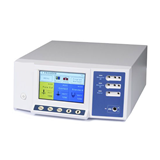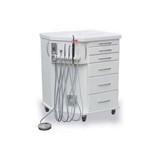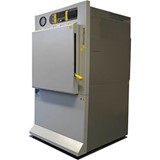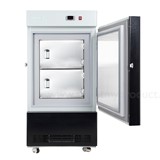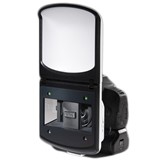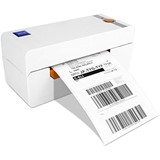Discover practical bulk purchasing strategies for medical supplies in Australia. Reduce overheads on gloves, masks & consumables with expert buying advice.
Key takeaways
- Bulk buying can reduce per-unit costs by up to 40% when consumables like nitrile gloves and face masks are purchased in large quantities from a single supplier.
- Bundling related items such as gloves, gowns, and masks often unlocks better pricing and consolidated freight savings of 10–15%.
- Quoting from multiple suppliers through MedicalSearch can expose price differences of up to 35% for identical products.
- Freight costs account for up to 20% of total consumable spend if not planned correctly—ordering in bulk helps minimise trips and total shipping fees.
- Storage planning matters: Consider costs of holding stock and rotation to avoid expiry or waste, especially for items like rapid antigen tests or swabs.
- Avoid overstocking low-turnover items—buying in bulk makes the most sense for high-use consumables with predictable demand.
Introduction
If you manage purchasing for a medical clinic or aged care facility in Australia, you’re likely under constant pressure to control costs without compromising care. One of the most effective ways to reduce ongoing expenses is to adopt smarter bulk buying strategies for medical consumables.
From gloves and gowns to specimen containers and rapid antigen tests, these items are essential—but their costs add up quickly when purchased inefficiently or in fragmented orders. This guide outlines practical, cost-saving tactics for purchasing consumables in bulk, helping you make the most of your budget while still maintaining quality and compliance.
Top medical consumables to buy in bulk
High-use items are prime candidates for bulk purchasing. These include:
- Nitrile Gloves (powder-free or standard): Daily-use essential in clinics and aged care settings. Buying in bulk can bring the cost down to as low as $0.07 per glove.
- Face and Surgical Masks (including KN95s): Particularly when managing infection control protocols across multiple staff or locations.
- Swabs and specimen containers: Routinely used in general practice and pathology collection.
- Face shields and disposable gowns: Ideal for facilities maintaining PPE stockpiles or adhering to heightened infection prevention standards.
- Rapid Antigen Tests: Still relevant in many settings; bulk cartons help avoid surge pricing during outbreaks.
How to get better quotes when buying in bulk
Quoting is a powerful tool in lowering costs—if done strategically. Here’s how to make the most of it:
- Always request multiple quotes from suppliers on MedicalSearch to benchmark pricing.
- Ask for quote variations (e.g. 3-month supply vs 6-month supply) to compare economies of scale.
- Negotiate for freight inclusion or discounts, particularly when ordering pallet-sized quantities.
- Specify brand or quality level clearly—suppliers may quote different quality items if you're vague.
- Include storage and delivery frequency in your quote to help suppliers tailor offers and pricing.
Bundle to unlock additional savings
Suppliers often offer discounts when you combine related products in a single quote. Consider:
- Bundling gloves, gowns, and face masks from the same manufacturer or distributor.
- Adding complementary items like swabs, specimen containers, and face shields to increase order value.
- Consolidating regular monthly orders into quarterly shipments to reduce per-order freight and admin costs.
Tip: Ask your supplier if they offer multi-product or tiered-pricing deals for bundled items.
When buying in bulk makes sense (and when it doesn't)
Bulk buying isn’t always the right choice. Here’s how to decide:
Buy in bulk when:
- The product has consistent high usage (e.g. gloves, masks).
- You have adequate storage and inventory tracking in place.
- The product has long shelf life and stable demand.
- Prices are expected to rise due to supply chain disruptions.
Avoid bulk when:
- The item is used infrequently or only in specific procedures.
- Shelf life is short (e.g. certain sterile products or COVID tests).
- Storage space is limited, increasing risk of spoilage or loss.
How freight and storage impact bulk buying costs
One hidden cost in medical procurement is freight. According to recent Australian supply chain analyses, freight and delivery fees can represent 10–20% of total consumable costs for small orders.
Bulk buying helps mitigate this by:
- Reducing delivery frequency (e.g. one shipment per quarter vs one per fortnight).
- Qualifying for pallet or full-load rates.
- Lowering administrative overheads from multiple orders and invoices.
However, storage must be carefully planned. Consider:
- FIFO (First In, First Out) systems to avoid wastage.
- Stock rotation practices.
- On-site vs off-site warehousing—off-site may carry hidden fees but can reduce on-premises clutter.
Supplier evaluation checklist for bulk consumables
Before committing to a large-volume purchase, it’s crucial to assess your supplier's reliability, product quality, and support services. Use this checklist to compare vendors and ensure your clinic or aged care facility is working with a partner who can deliver on both cost and care.
Bulk supplier evaluation checklist:
- Transparent pricing: Are bulk discounts clearly displayed or explained in quotes?
- Quote breakdowns: Does the quote itemise unit costs, GST, freight, and other fees?
- TGA certification: Are all medical products listed with the Therapeutic Goods Administration (TGA)?
- Expiry date clarity: Are expiry dates visible and suitable for your forecasted usage timeline?
- Batch tracking: Can the supplier provide batch and lot information for recall or compliance purposes?
- Freight and logistics: Are delivery windows, pallet sizes, and courier partnerships clearly explained?
- Recurring order options: Does the supplier offer auto-replenishment or long-term contract pricing?
- Customer support: Is there dedicated support for reordering, invoicing, or urgent stock issues?
- Reputation and reviews: Can the supplier provide healthcare-specific testimonials or case studies?
- Sustainability practices: Are packaging, disposal, and eco-certifications aligned with your organisational values?
This checklist can be used when comparing suppliers through MedicalSearch’s Quote Request tool, which allows you to reach multiple verified providers with one submission.
Compliance and safety considerations in bulk procurement
Buying in bulk doesn't eliminate your legal and operational responsibilities. To stay compliant and ensure patient safety, it’s essential to follow Australian regulations for storage, use, and disposal of medical consumables—especially when ordering in larger volumes.
What to look out for:
TGA-listed products only
Always verify that products such as gloves, swabs, gowns, face masks, and antigen tests are included in the Australian Register of Therapeutic Goods (ARTG). Non-listed goods risk regulatory breaches and compromised patient safety.
Storage compliance
- Temperature-sensitive goods like rapid antigen tests or sterile swabs must be stored within the temperature ranges specified by manufacturers.
- Sterility and contamination controls should be considered when storing open boxes of gloves or gowns.
Batch tracking and documentation
For infection control and legal traceability:
- Maintain digital or manual records of batch numbers, expiry dates, and delivery dates.
- Ensure your supplier includes these on packing slips and invoices.
Waste and expiry management
With bulk orders, waste can increase without proper oversight:
- Use FIFO (First In, First Out) systems to rotate stock.
- Regularly audit consumables nearing expiry, and set internal alerts for review 60–90 days before expiration.
- Comply with state and local regulations on clinical waste and expired medical stock disposal.
Infection prevention standards
The Australian Guidelines for the Prevention and Control of Infection in Healthcare should guide your use and storage of all bulk PPE and consumables. Improper handling or stockpiling in non-sterile environments could breach compliance or increase infection risks.
FAQs: Cost-cutting through bulk medical buying
- Can I really save that much buying in bulk?
Yes. Bulk purchases commonly reduce per-unit costs by 15–40%, depending on the item and supplier. However, you need to ensure you can store and rotate stock effectively to avoid waste. - What if I only run a small clinic—should I still buy in bulk?
Even smaller practices benefit from bulk buying high-turnover items like gloves or masks. If you don’t have space, consider partnering with nearby clinics or joining a buying group. - Do suppliers offer better deals for bundled items?
Yes. Many suppliers will discount if you purchase related items together (e.g. gloves + gowns + masks), especially if you increase order volume or sign longer-term agreements. - How often should I request new quotes?
Every 3–6 months is ideal. Markets change and new suppliers enter regularly. Quoting periodically helps keep your pricing sharp and exposes better terms. - Should I lock into long-term supply agreements?
If you use predictable quantities of key consumables and have secure storage, locking in supply can help hedge against price rises and ensure continuity.
Final thoughts
Cutting costs on medical consumables doesn’t mean sacrificing quality or safety. By planning strategically, quoting smartly, and choosing the right items to buy in bulk, your clinic or aged care facility can protect budgets while maintaining a high standard of care.
Need quotes for bulk medical consumables? Use MedicalSearch to compare trusted Australian suppliers and find the best value today.



-160x160-state_article-rel-cat.png)









